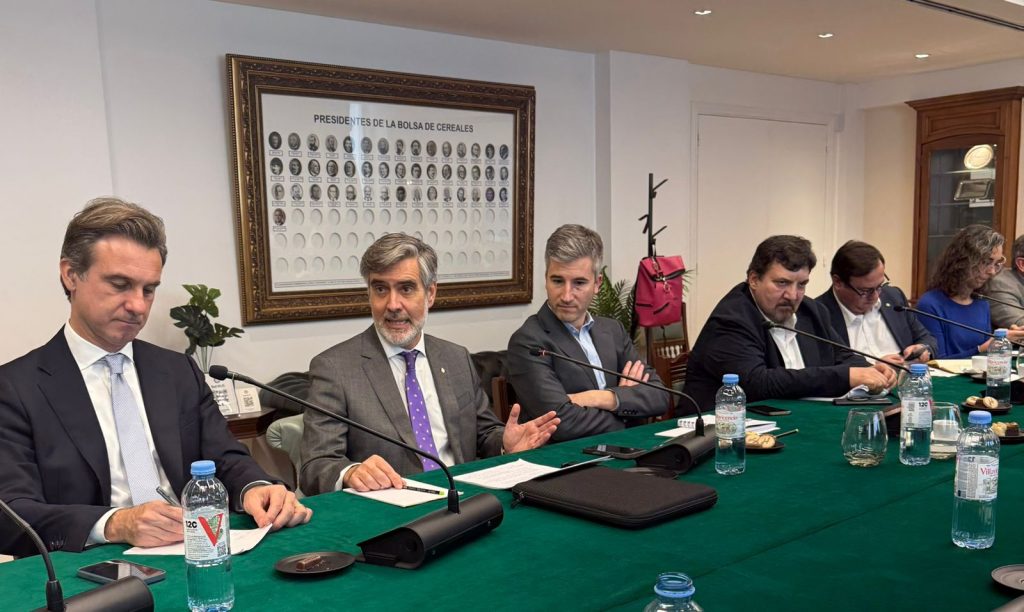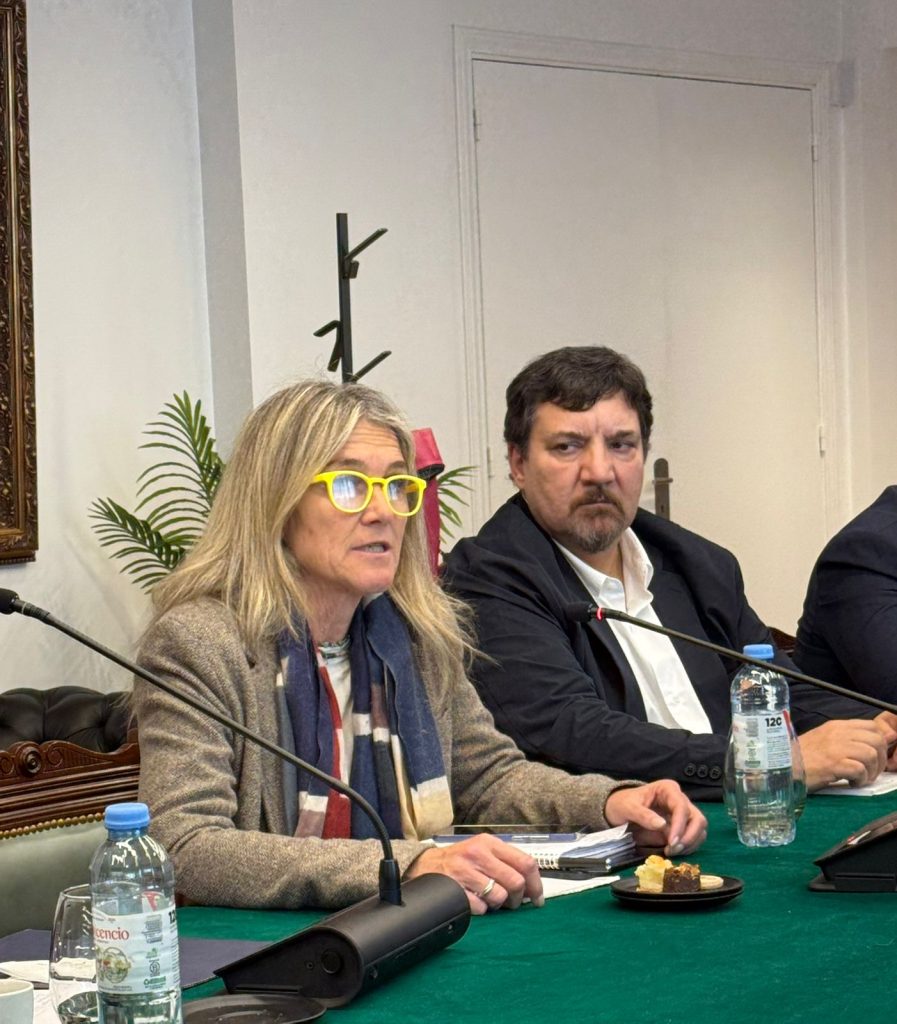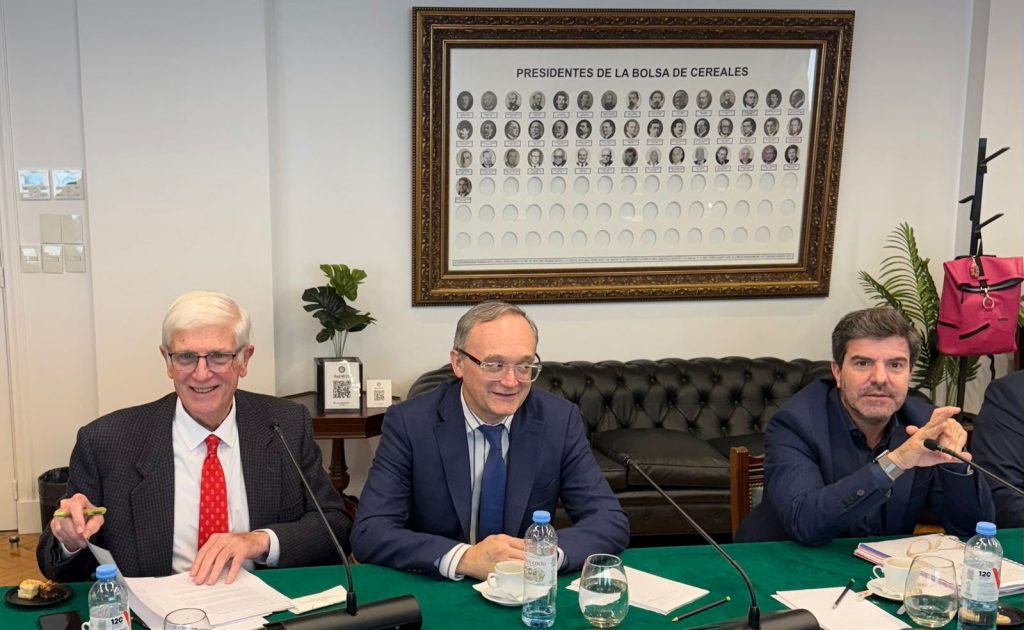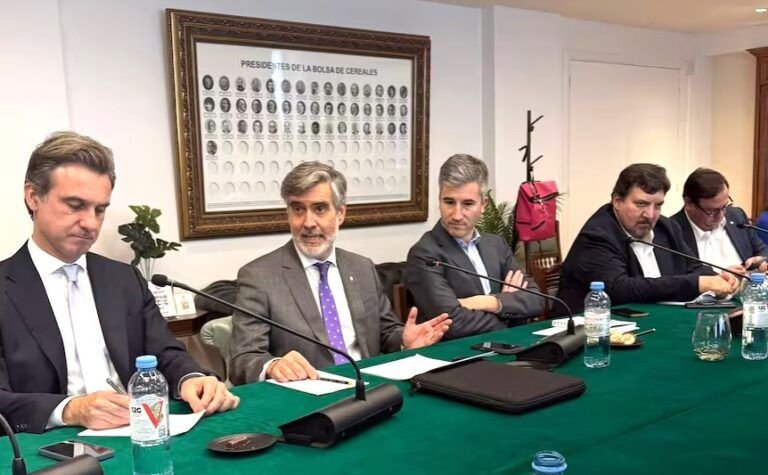por Mariano | Ago 28, 2025 | Gacetillas
The Argentine Agroindustrial Council (CAA) held its monthly plenary meeting with the participation of more than 40 chambers and organizations, where important agreements were reached and strategies developed alongside representatives of the national government.
At the meeting, the CAA signed a technical cooperation agreement with the Group of Southern Producer Countries (GPS) to improve the analysis of international markets, especially in the face of geopolitical conflicts affecting the agricultural export sectors. In addition, a key meeting was held with the Secretary of International Economic Negotiations, Ambassador Fernando Brun, to discuss market access for various products, such as meat, fruits, dairy products, grains, and oilseeds, among others. Multilateral negotiations establishing sanitary and phytosanitary regulations were also addressed. The president of the CAA, Gustavo Idígoras, stated that "the working meeting with the economic team of the Ministry of Foreign Affairs was very positive. We feel supported by this Ministry of Foreign Affairs, which understands the imperative need for public-private coordination to defend the export interests of the agroindustry in a very aggressive context with new forms of international protectionism."
Also participating in the meeting was Agustín Tejeda, Undersecretary of Markets of SAGyP. He leads the agroindustrial technical negotiations and assists the Ministry of Foreign Affairs in all forums.
Strengthening SENASA and legislative agenda
The president of SENASA, María Beatriz Giraudo, was also present at the meeting. The visit focused on the need to strengthen this organization as a fundamental tool for certifying exports. The CAA proposed reactivating the technical roundtables to advance regulatory facilitation and health negotiations. According to Idígoras, Giraudo's presence demonstrates the interest in a common agenda that seeks a strengthened, autonomous SENASA with full technical capacity.
The agroindustrial sector urges the House of Representatives to address the Investment Law (RIMI)
Finally, the Council analyzed the status of the Investment Law (RIMI Law), which has not yet been addressed in the Chamber of Deputies. The president of the CAA expressed the entity's concern about the lack of progress, as this law could generate a strong recovery in investment at the federal level. The CAA will continue working to promote this initiative, as well as other bills such as those on biofuels and agricultural risk.



READ THE ARTICLE FROM Consejo Agroindustrial Argentino.org.ar



